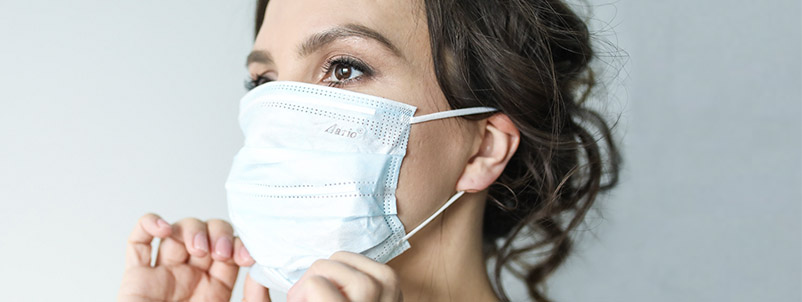A Top Concern for "Essential" Pennsylvania Employers: The Impact of COVID-19 on Workers' Compensation

If one thing is certain in the wake of COVID-19, it's the uncertainty we are all facing. Pennsylvania Governor Tom Wolf has asked that non-essential businesses temporarily close, which includes "public-facing" industries such as gyms, movie theaters, and casinos. Conversely, the governor requests that all essential services and sectors such as medical facilities, food processing plants, industrial manufacturing, trash collection, grocery stores, etc., remain open and mindful of social distancing practices. With that, the burning question for such essential businesses is: What if one (or more) of my employees is exposed to, or becomes infected with COVID-19 while on the job?
As I write this piece, a friend who works at a Philadelphia-area hospital as a Physical Therapist Supervisor texted me with a very important issue related to this question. One of her per diem therapists was directed by the hospital administration to work in the reception area of their hospital because the regular reception staff are either elderly or called out of work due to COVID-19 concerns. The therapist and her supervisor (my friend) agreed that while at the desk, the therapist would wear a mask to protect herself from the hundreds of people she encountered during her shift. The Administrative Supervisor chastised her, told her to take the mask off as it was a "misuse" of hospital property and sent her home. The question my friend posed to me is, "If she contracts COVID-19 from these administrative duties, how do I handle a potential workers' comp claim?"
Under Section 108 of the Pennsylvania Workers' Compensation Act, certain diseases are identified as potentially compensable including illnesses such as Black Lung, Anthrax and Tuberculosis, among others. If a worker is exposed to these illnesses, he/she will enjoy the presumption that his/her exposure did occur within the course and scope of his/her duties. However, there is a "catch-all" provision for all other occupational diseases not specifically outlined in Section 108. These "catch-all" diseases, can be compensable if they meet certain criteria for determining whether a disease is occupationally related. The determination of whether a disease is compensable depends on the following:
1. The employee is exposed to the disease by reason of his/her employment.
2. The disease is causally related to the employee's industry or occupation.
3. The occurrence of the disease is substantially greater in that industry or occupation than it is in the general population.
For an ICU nurse or ER doctor, this might be an easy set of criteria to meet should they contract COVID-19. But, for those employed in other businesses deemed essential, such as trash collectors or the grocery store cashier, the burden of proving Number 3 may be difficult to overcome. As for the physical therapist who was asked to fill in as a receptionist? Stay tuned.
Practically speaking, employers should keep accurate and detailed records on any claims, but very importantly on any claims involving COVID-19 claims or potential work-place exposures. Employers should also review their current workers' compensation policies and contact their carriers to discuss potential exposure risks and whether coverage needs to be revised.
To adapt to the rapidly changing situation involving reporting of COVID-19 workplace claims and claims handling, the PA Bureau of Workers' Compensation has approved a new injury code for carriers to report and record such claims. Therefore, when COVID-19 claims are reported to employers and carriers, these claims can now be easily identified in the Bureau of Workers' Compensation WCAIS system by the new code.
